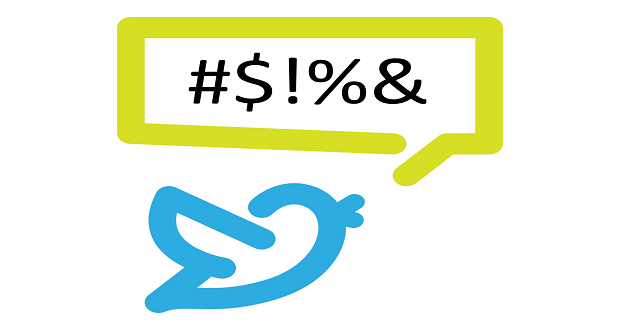
This month, the U.S. Soccer Federation hired two lobbying firms to challenge the recent accusation that players on its women’s teams are underpaid. This comes on the tails of the women’s team’s World Cup win in July—when they were widely celebrated and idolized as feminist heroes. Earlier this year, the players filed a lawsuit claiming that under their last contract, players on the women’s team could earn as little as 38% of what a player on the men’s team earned. Lawmakers subsequently introduced bills that would require the Federation to pay the women’s and men’s teams equally. The Federation’s decision to hire lobbyists comes in response to scrutiny and calls for equity for the women’s team.
Last year, FIFA Women’s World Cup champion Abby Wambach delivered an incredible commencement speech at Barnard College. In the speech, Wambach recounts a story from her retirement, when she was recognized with ESPN’s Inaugural Icon Award. She recalls feeling deeply honored when she got the call. On presentation day, basketball and football stars Kobe Bryant and Peyton Manning received the award alongside her; she described what she felt in that moment:
“We all stood on stage together and watched highlights of our careers, with cameras rolling and fans cheering. I looked around and had a moment of extreme awe. I felt so grateful to be there included in the company of Kobe and Peyton. I had a momentary feeling of having arrived, like we women had finally made it. Then, the applause ended and it was time for the three of us to exit stage left. As I watched those men walk off the stage, it dawned on me that the three of us were stepping into very different futures. Each of us made the same sacrifices, shed the same amount of blood, sweat, and tears. We’d left it all on the fields for decades with the same ferocity, talent, and commitment. But our retirements wouldn’t be the same at all. Kobe and Peyton walked away from their careers with something I didn’t have: enormous bank accounts. Because of that, they had something else I didn’t have: freedom. Their hustling days were over, and mine were just beginning.”
As I heard her recount this story, I was right there with her, sharing this epiphany. Initially: who wouldn’t be honored to be recognized on a stage alongside two sports superstars, right? Yet, unpack this situation a bit further and we must ask: what about our culture teaches successful women athletes that they should expect anything less than successful male athletes? Why? Then: Who wouldn’t be upset to realize that despite doing the same work, and being just as devoted throughout their career, they were walking away with so much less to support themselves than their peers? Wambach didn’t mince words as she followed this reality to its natural conclusion:
We must ask: what about our culture teaches successful women athletes that they should expect anything less than successful male athletes? Why? Share on X“Over time, women are able to invest less, and save less, so they have to work longer. When we talk about what the pay gap costs us, let’s be clear: it costs us our very lives.”
Wambach’s words echoed in my head as I read about the U.S. Soccer Federation hiring lobbyists this month. While, for various reasons, the pay earned by the men’s and women’s national teams cannot be compared side-by-side without adjusting for nuances, the fact remains that the women’s team players are paid significantly less. The Federation’s response to this reality is embarrassing.
This organization had an opportunity to be a high-profile example of how to get things right regarding equal pay for equal work. Furthermore, we are living in a time when more criticism than ever is being levelled at organizations that do not have equitable pay practices, and a cultural shift seems imminent. They were handed the potential to be a pioneering example, to pave the way toward (more) equitable pay… and they botched it.
This organization had an opportunity to be a high-profile example of how to get things right regarding equal pay for equal work... and they botched it. Share on XAmong the arguments made by the lobbyists in a presentation they are circulating is that players on the women’s team receive health benefits, maternity leave, and a subsidy for childcare that players on the men’s team are not offered—as if several months of paid leave and a stipend for childcare (benefits we are only granted if we choose to have children) are comparable to decades of drastically disparate compensation. The logic is flawed, and players on the men’s and women’s team alike agreed that the numbers cited were misleading.
To be certain, women’s sports do not typically bring in as much money from ticket sales, sponsorships, etc. as men’s sports do. But that traces directly back to sexism—there is a huge bias towards male athletes due to a historical status quo. Relying on this as a metric for pay is as good as saying, “We can’t pay you fairly because we’re not willing to challenge sexism.” Not only is the Federation buying into the idea that women athletes are worth less than their peers who are men, they hired someone to argue that this inequity is justified. It’s a slap in the face to these players.
Here’s an idea: let’s look for ways to promote equity, rather than digging in our heels to resist change. What if, instead of defensively hiring lobbyists to prove how fair we’re being in the face of criticism, we altered policies to address the problem? Perhaps if the Federation substantially invested in and publicized its women’s team and their successes, we could see a cultural shift in turn. (The celebration of the team after their World Cup win provided a taste of what is possible!) What if we offered players on the men’s team paternity leave and childcare stipends and redistributed funds to pay salaries consistently regardless of sex or team membership?
Let’s look for ways to promote equity, rather than digging in our heels to resist change. What if, instead of defensively hiring lobbyists to prove how fair we’re being in the face of criticism, we altered policies to address the… Share on XOne final idea, as food for thought: what if athletes who are men chose to stand as allies with their peers who happen to be women, not only acknowledging, “this isn’t right,” but pledging, if their organizations refuse to negotiate, to take a pay cut from the millions they are sometimes paid to make up some of the difference? Allyship is challenging and at times demands sacrifices to bring about progress, but history has taught us how powerful it can be.
Allyship is challenging and at times demands sacrifices to bring about progress, but history has taught us how powerful it can be. Share on XGender itself is arbitrary and socially constructed, but it will likely be years or decades before we see recognition of this in national sports leagues. Dividing athletes by sex—and particularly treating them differently after doing so—is outdated and unnecessary, as a woman who won a marathon outright this month (much to the surprise of the unprepared organizers!) proved. If we insist upon maintaining these divisions for now, the least we can do is offer equal pay for equal work.


















